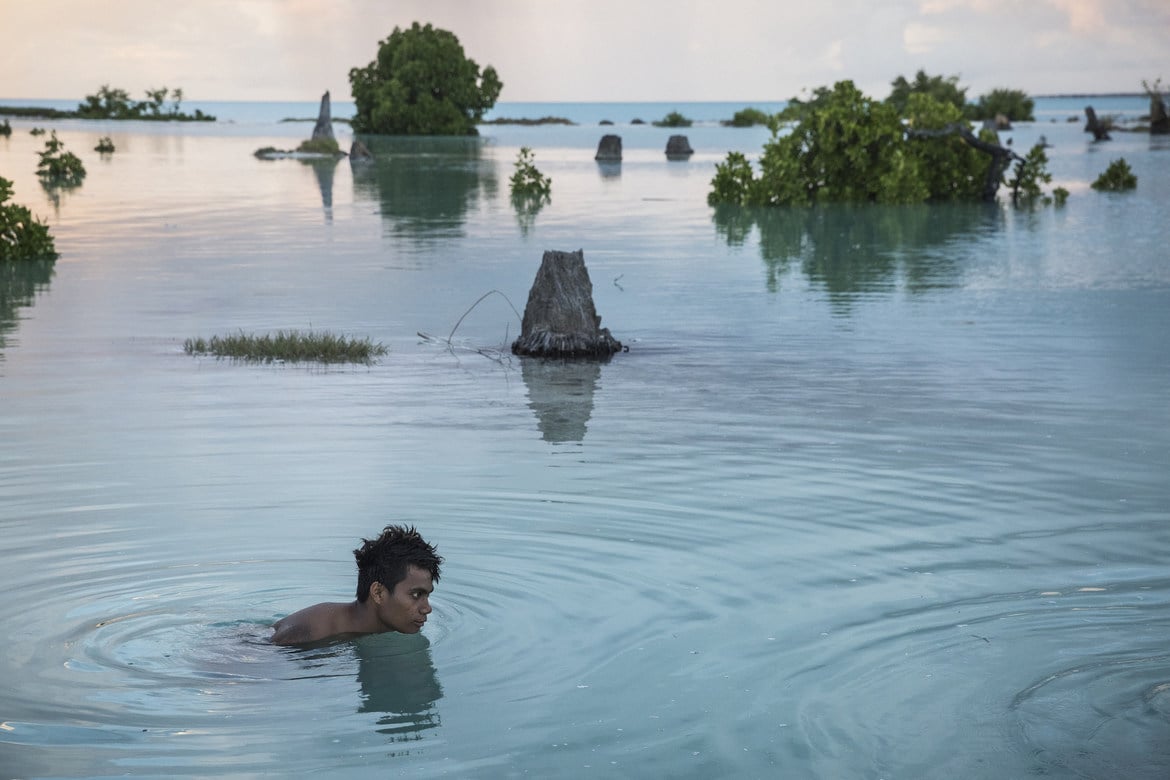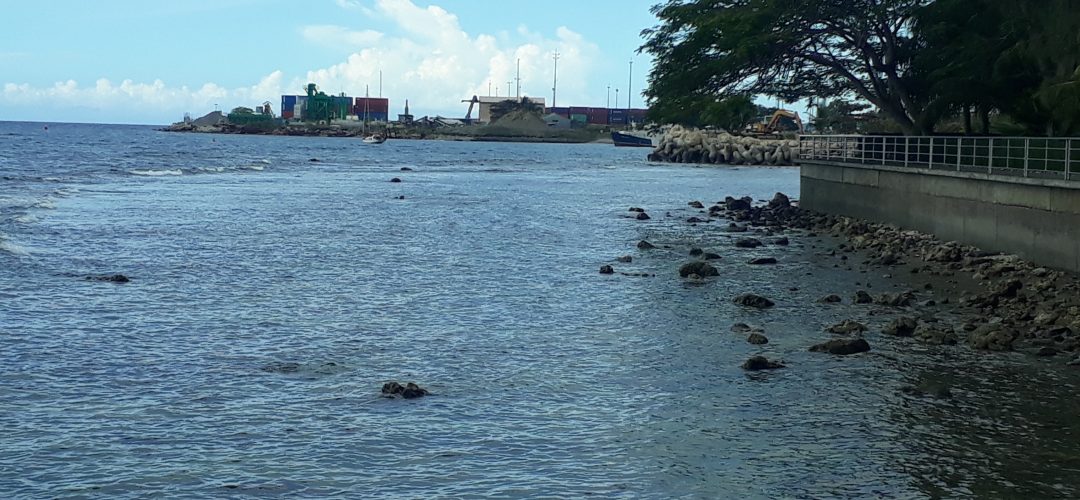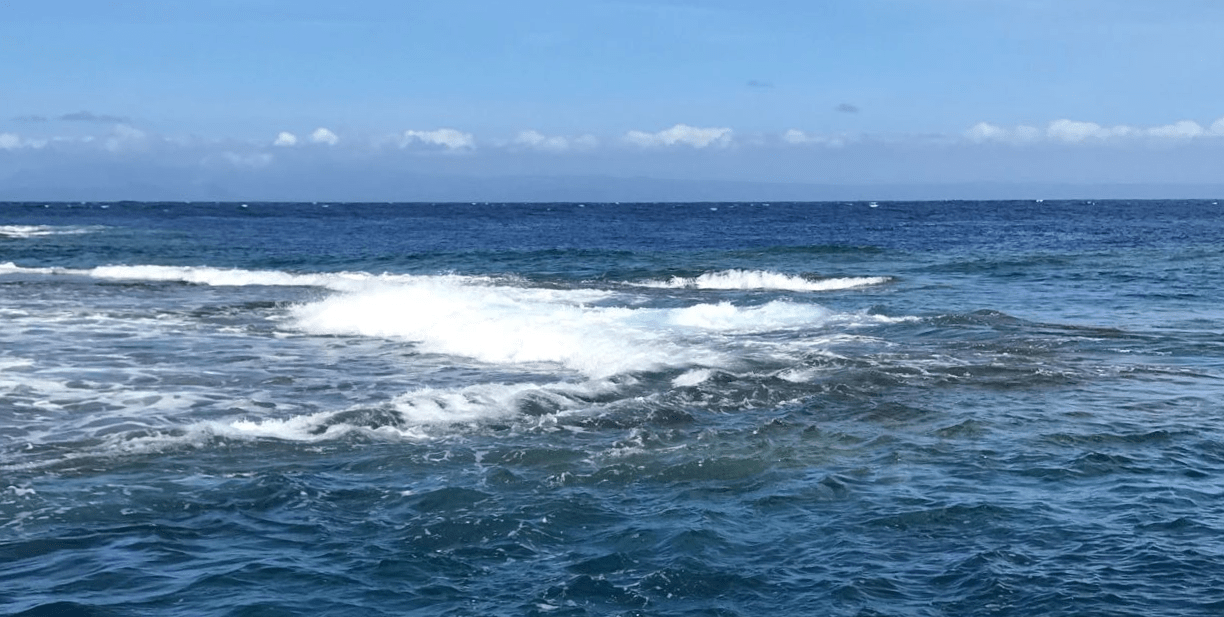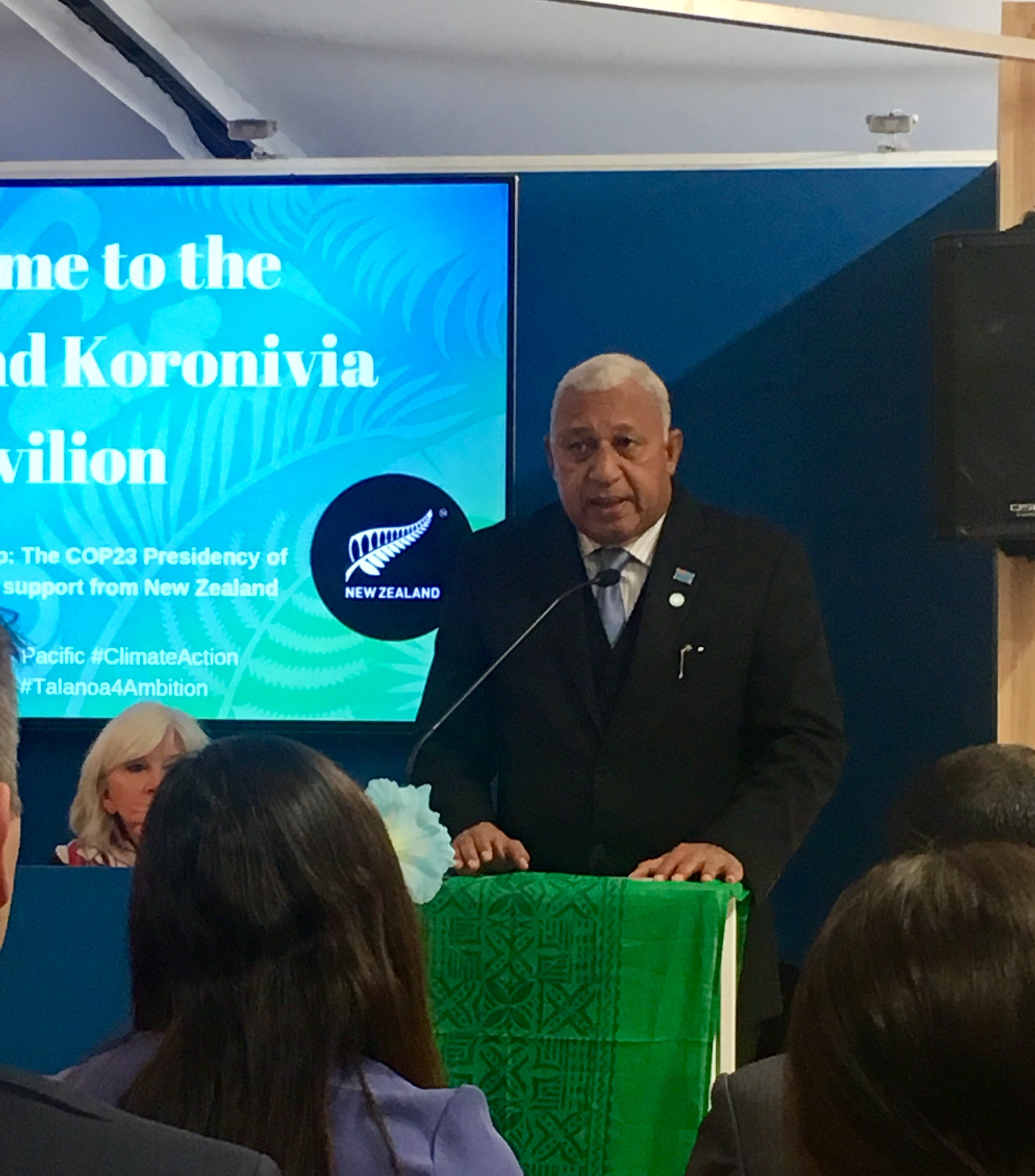Nadi, Fiji (July 31, 2019) – A ‘climate crisis’ has been declared in a special session during the 5th Pacific Islands Development Forum (PIDF) Leaders’ Summit and first Conference, echoing the global movement declaring ‘climate emergency.’
The PIDF Leaders’ Summit had representation from 10 of the 14 member states, which are among those most at risk to climate breakdown such Fiji, the Solomon Islands, and Timor Leste – in addition to regional institutions such as the Pacific Islands Association of NGOs, the Pacific Islands Private Sector Organisation (PIPSO) and the University of the South Pacific (USP).
“This declaration makes clear that the current scale of the climate crisis calls for urgent action to phase out coal and other fossil fuels,” said Fenton Lutunatabua, Regional Managing Director of 350.org in the Pacific.
“This visionary Declaration is a testament to the will of the Pacific people who have moved their politicians to show committed actions in confronting the climate crisis.”
“The collective futures of Pacific peoples depends on us being able to pushback against the fossil fuel industry fuelling this climate crisis, and towards equitable and just solutions centered on people – this is what is at the heart of this important international statement.” Lutunatabua added.
Full text of the declaration:
Nadi Bay Declaration on the Climate Change Crisis in the Pacific
We, the People of the Pacific Islands Development Forum, Striving to advance the
sustainable and inclusive development of Pacific Island nations,
Dedicated to the goals of poverty eradication, environmental preservation and to
addressing the challenges of the current anthropogenic climate change crisis;
Advocating for a paradigm shift to foster coherence between Climate Change mitigation
and adaptation actions, environmental protection and resilience development;
Declare that we:
- Express deep concern about the lack of comprehension, ambition, or commitment shown by
developed nations of the world regarding the impending grave consequences that the
current and ongoing Climate Crisis poses for vulnerable Pacific Small Island Developing
States (PSIDS), which contribute negligible amounts of greenhouse gases (GHGs) to this
human-caused global problem;
2. Recall the Suva Declaration on Climate Change that called for the need to limit the global
temperature increase to 1.5°C compared to pre-industrial levels, which was eventually and
legally adopted as a GHG emissions and temperature target in the Paris Agreement on
Climate Change;
3. Underscore the serious concerns and the stark warnings, documented by the IPCC Special
Report on 1.5°C and the Special Report on Oceans and Cryosphere, GHG emissions must
be reduced immediately. The science warns of the real possibility that coral atoll nations
could become uninhabitable as early as 2030. By 2100, the coral atoll nations of the
Republic of the Marshall Islands, Tuvalu, Kiribati, Tokelau and the Maldives and many
SIDS could be submerged.
4. As Leaders of Big Ocean States, emphasize the important relationship between the ocean
and climate change in terms of management of carbon, the absorption of heat and
regulation of global climate system;
5. Re-assert the serious effects of loss and damage on PSIDS including the implications on
territorial baselines and EEZ, and the concerns on the current degradation of ocean health,
ice-sheets depletion and sea level rise, and their impact on the survivability, livelihood and
sovereignty of PSIDS;
6. Affirm that climate change poses the single greatest threat to the human rights and security
of present and future generations of Pacific Island peoples;
7. Strongly support the need for a UN Resolution to establish a Legal Framework to protect
the rights of people displaced by climate change that impedes access to basic rights to life,
water, food, and housing for many millions of people around the world;
8. Support the statement of United Nations Secretary-General António Guterres to “tax
pollution, not people, and end subsidies for fossil fuels” during a visit to Tuvalu;
9. Call for urgent actions by all countries, to fully honour and implement their Kyoto Protocol
and its amended GHG emissions reduction targets, as well as to meet their NDCs under
the Paris Agreement;
10.Recognize the urgent responsibility and moral obligation of fossil fuel producers to lead in
putting an end to fossil fuel development and to manage the decline of existing production
and the need to ensure the phase out of coal power to achieve the Paris climate goals and
also recognize that these do not just have economic costs, but also are of widespread
detriment to human health through acute respiratory and cardiovascular diseases.
11.Recognize the ambitions of the Tony de Brum Declaration that targets a reduction of GHG
emissions from the shipping industry, and encourage all countries to support efforts aimed
at decarbonizing the transport sector, particularly the maritime sector, and seek Pacific
partnerships working to advance these efforts;
Considering the impacts of Climate Change on the whole Pacific and the individual Pacific
island countries, WE the People of the Pacific Islands Development Forum, declare a
Climate Change Crisis in the Pacific and
CALL:
a. On all parties to the UNFCCC to recognize the work of the Intergovernmental Panel
on Climate Change (IPCC) and the important scientific work that they produce;
b. On the global community to seriously take action to urgently address the warnings of
the IPCC Special Report on the dire consequences of lack of urgent actions to address
climate change and sea level rise on SIDS, and their legal and moral responsibility to
account for the loss and damages inflicted on SIDS;
c. On all parties to welcome the IPCC Special Report on 1.5°C, and the upcoming
Special Report on the Ocean and Cryosphere in a Changing Climate and the Special
Report on Climate Change and Land by the 25th UNFCCC Conference of Parties to
meet in Santiago Chile on 2-13 December 2019;
d. On those governments of high emitting countries that are hindering progress in climate
change efforts to heed the climate science and urgently change direction for the benefit
of all, including the people in their own countries;
e. On all coal producers to immediately cease any new mining of coal and develop a
strategy for a decadal phase-out and closure of all existing coal production;
f. On all parties to take immediate measures to relinquish the subsidies to fossil fuel
production and use and support a transition to appropriate and affordable technologies;
g. On relevant parties to the Kyoto Protocol to refrain from using ‘carryover credits’ as
an abatement for the additional Paris Agreement emissions reduction targets;
h. Other UNFCCC parties to support the Ocean Pathway Initiative launched at COP 23
in Bonn that aims for an ocean inclusive UNFCCC process at COP25;
i. On all developed countries to support climate finance, capacity development and
technology transfer for the vulnerable developing countries to transition to renewable
energy for electricity generation and transport.
j. On parties to the UNFCCC to ensure there is sufficient finances in support of the
Green Climate Fund and to support its replenishment and ensure the rapid deployment
of funds to support both mitigation and adaptation efforts;
k. On the UN Secretary General to ensure that the upcoming UN Climate Change
Summit leads to accelerated ambitions on climate change mitigation and adaptation
and encourage all states to urgently take action to address climate change;
l. Also on the UN Secretary General to initiate a thorough review of the obligations of
States under International Law with particular reference to the protection of present
and future generations against the adverse effects of climate change, as under Article 2
of the UNFCCC.
Endorsed at Nadi Bay, Fiji on the 30th July 2019
credit: 350.org




